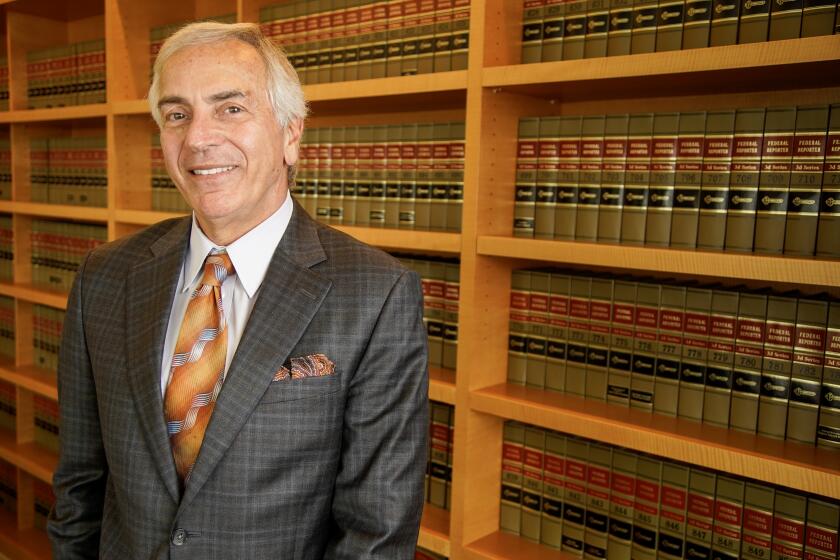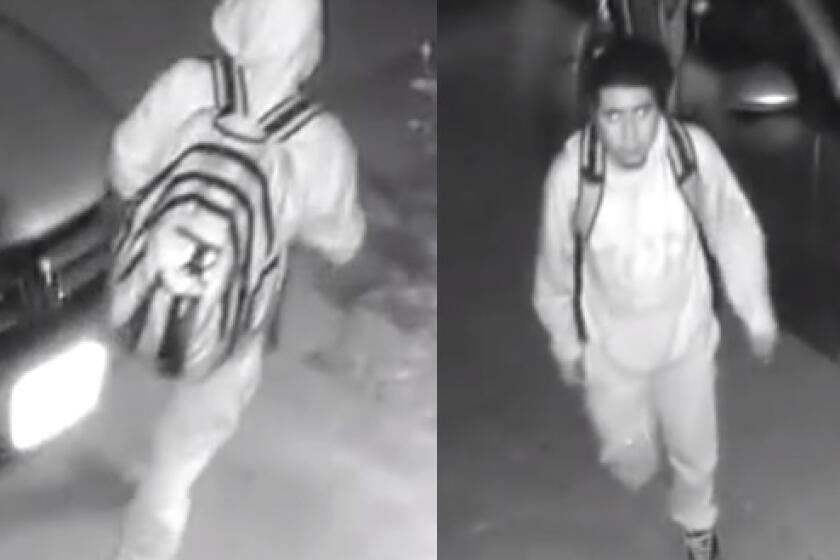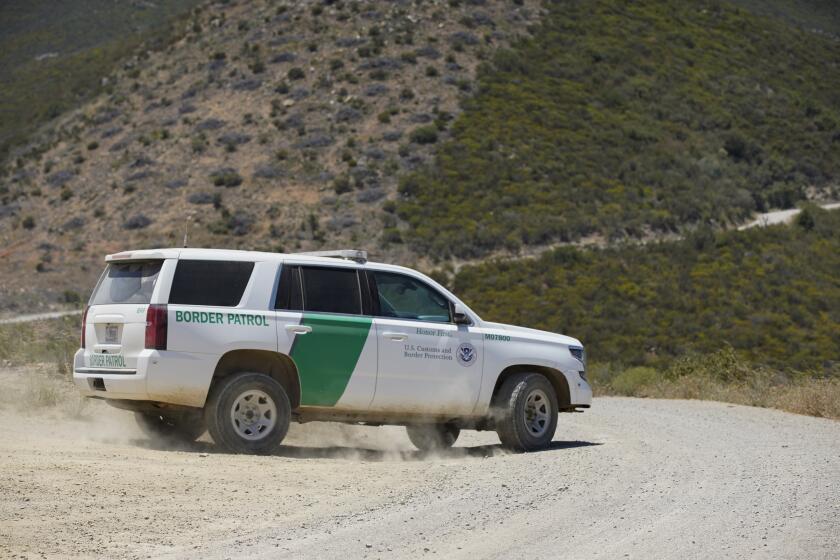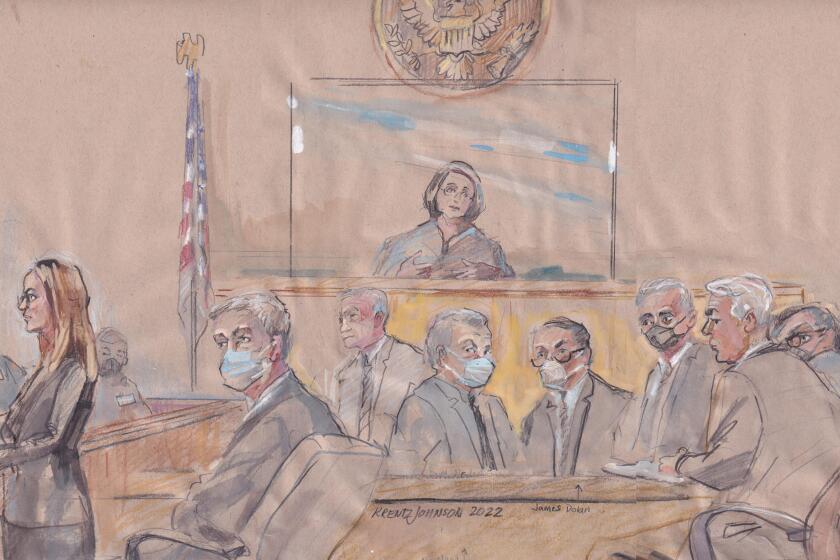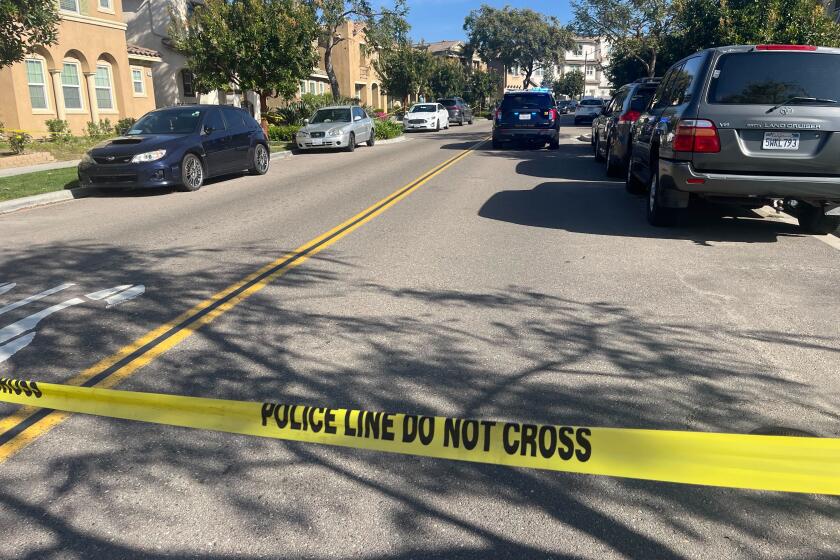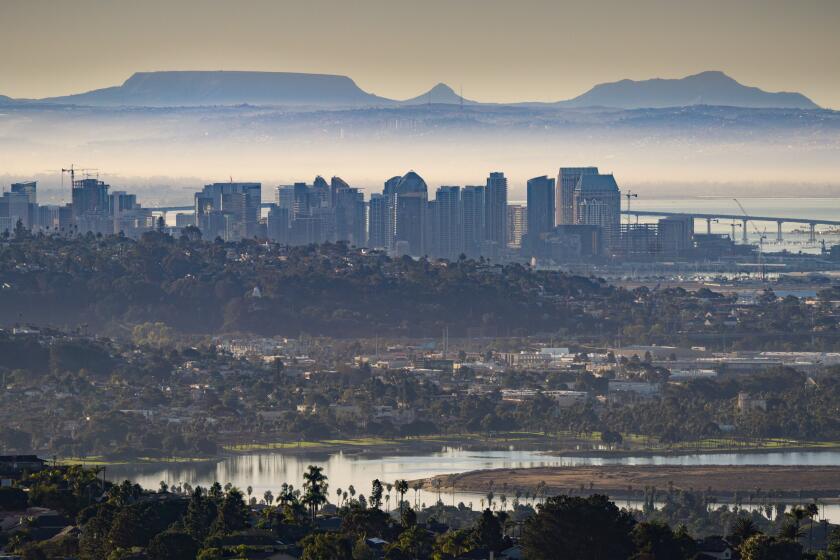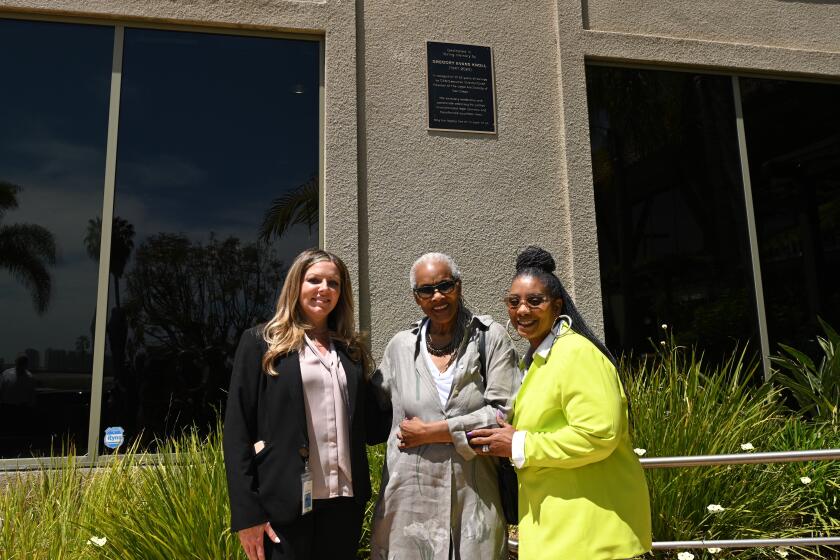Trial opens in first ‘antifa’ conspiracy case arising from Pacific Beach political protest
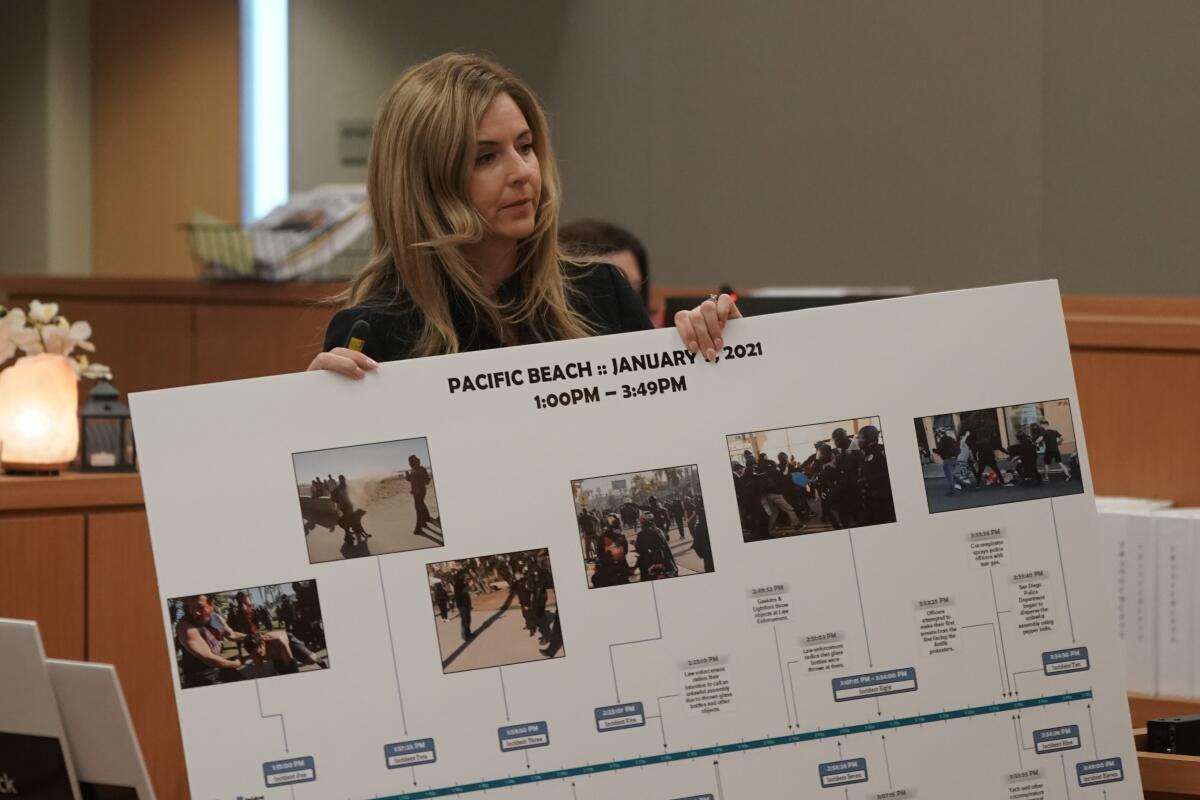
Prosecutors say Brian Lightfoot, Jeremy White conspired with others to attack pro-Trump group; defense says violence went both ways as political opponents clashed
More than three years after a political rally and counter-protest turned violent in the streets of Pacific Beach, a trial linked to that bloody day began Tuesday in San Diego Superior Court in what extremism experts have described as the first ever prosecution alleging an “antifa” conspiracy.
A prosecutor told the jury during opening statements that the two trial defendants, Brian Cortez Lightfoot, 27, and Jeremy Jonathan White, 41, were self-described anti-fascists who showed up prepared to attack their political enemies at the Jan. 9, 2021, “Patriot March” organized by supporters of then-outgoing President Donald Trump. Defense attorneys told the jurors their clients were there to counter-protest the march and that any violence they might have participated in was self-defense against provocateurs and armed members of the pro-Trump group.
Lightfoot and White each face a charge of conspiracy to commit a riot. White also faces an assault charge. Lightfoot faces multiple assault allegations and charges related to using bear spray. Their nine co-defendants previously pleaded guilty to various charges, with a few receiving time in prison and others still awaiting their sentences.
Experts who study domestic extremism said the criminal case marked the first time ever that prosecutors used a conspiracy charge specifically to prosecute alleged members of antifa, which is generally considered a decentralized movement of street activists often made up of socialists, anarchists and other left-wing ideologues.
Deputy District Attorney Makenzie Harvey opened the trial Tuesday by telling the jury that freedom of speech and assembly and equal protection of the law — rights enshrined by the First and 14th Amendments — “will be the foundation” of the government’s case. She said Lightfoot and White “arrived prepared for violence” and had a plan to attack the pro-Trump group in disregard of free speech protections and the law.
After playing several videos of the 11 incidents at the heart of the case, Harvey said the jury “will not be asked how you feel about patriot groups,” Trump or the anti-fascist ideology.
“You will be asked to convict them for these attacks,” she said.
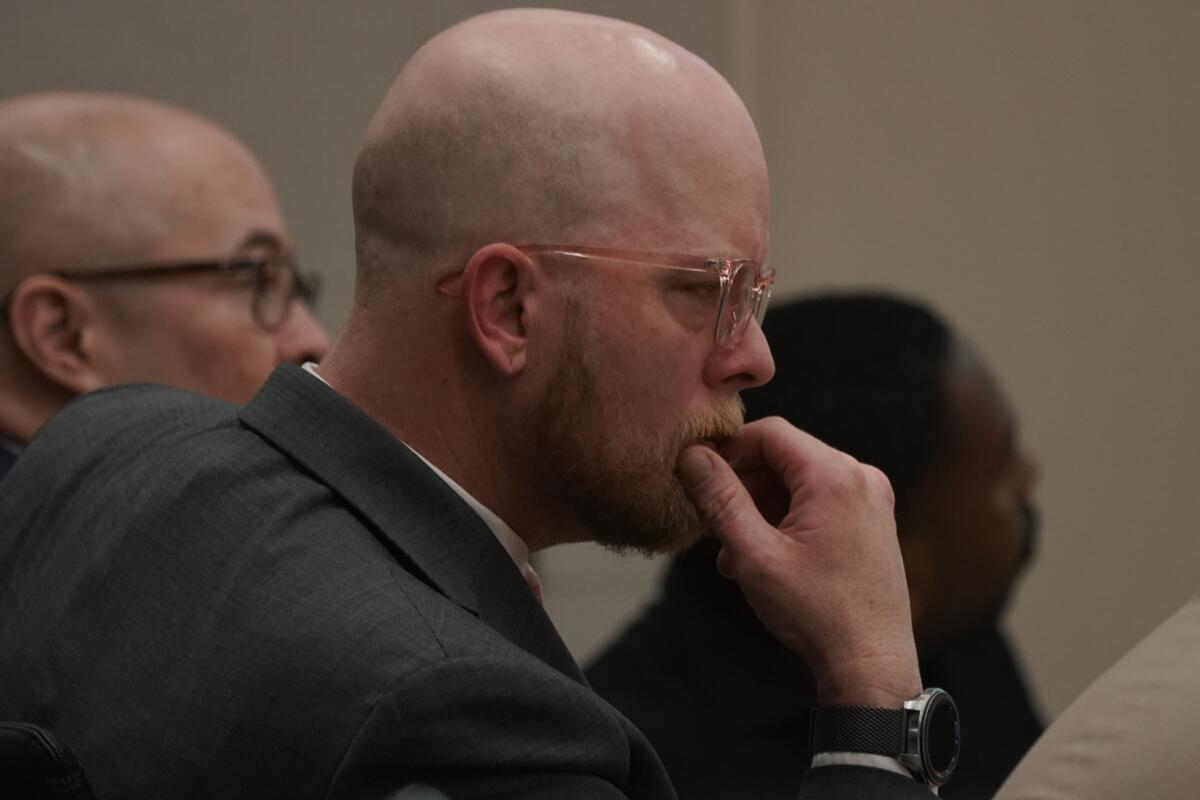
Curtis Briggs told the jury that his client, White, was “not even close or involved in most of the incidents” that Harvey played in court. Briggs said most of the videos showed the actions of co-defendants and were only relevant under the government’s theory that White conspired with the others.
“You should be asking yourself, ‘Where’s Mr. White? What’s he doing?’” Briggs told the jury. He added that the videos and photographs that Harvey displayed in her opening statement left out important context and sought to portray violent and sometimes armed pro-Trump marchers as innocent victims.
John Hamasaki, defense attorney for Lightfoot, told jurors that prosecutors are seeking “guilt by association” by presenting incidents the two trial defendants were not involved in. Like Briggs, Hamasaki said some of the people attacked by the antifa group were wearing reinforced gloves and armed with knives.
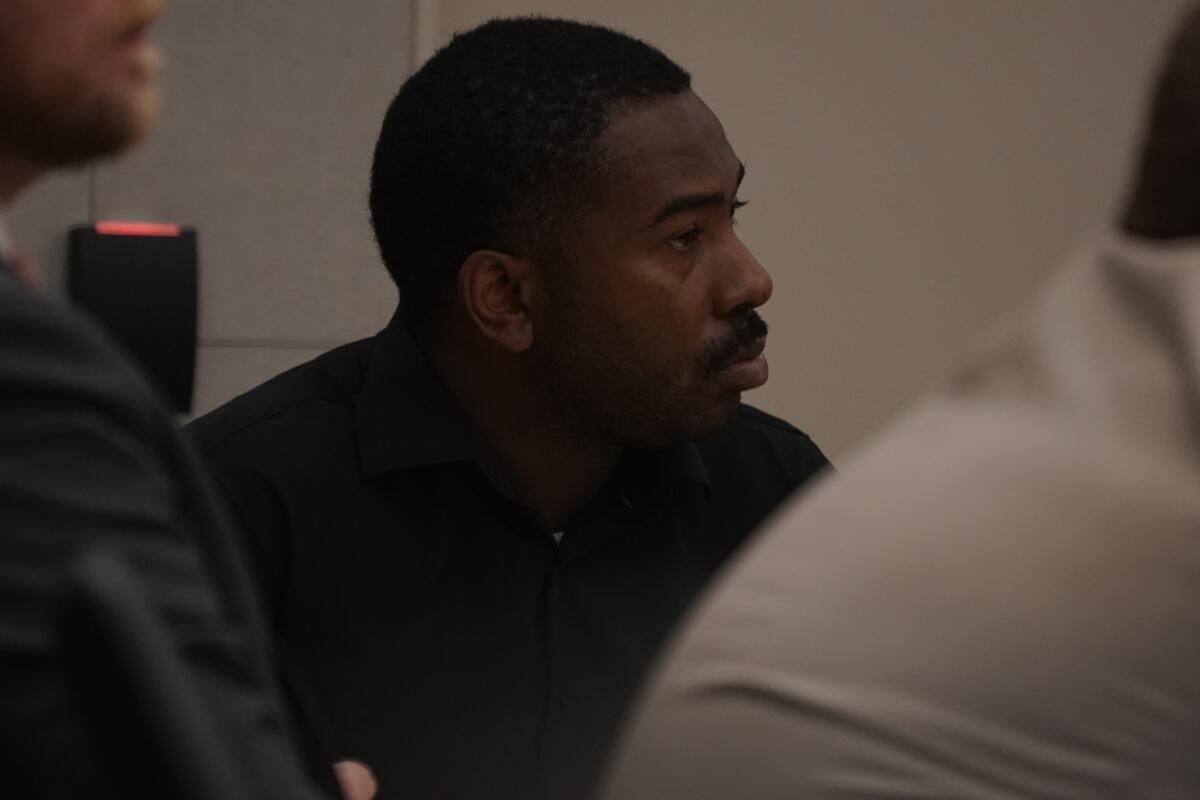
“The idea that they were out there just looking for a peaceful Patriot March — I think the evidence will show that is not correct,” Hamasaki said. “Some of these people out here were looking for trouble, were looking for conflict, and were looking for a fight. ... This was not a one-way street like prosecutors presented it.”
Hamasaki told jurors that they got a “complicated, messy case” that won’t be easy to decide. And he said that at some points, they might say to themselves, “‘Geez, Brian. Did you have to do that?’” But he told the jurors that there is a difference between a mutual fight and an assault, and that Lightfoot acted in self-defense.
Briggs previously sought to have San Diego County District Attorney Summer Stephan’s office disqualified from prosecuting the case, arguing the office showed political bias by prosecuting only anti-fascists and not those who attended the event in support of Trump. He argued that Stephan had shown her bias with a controversial 2018 campaign website that featured a menacing image of antifa marchers behind a superimposed photo of George Soros, the billionaire liberal activist who is often vilified in conservative circles and had donated money to a super PAC supporting Stephan’s opponent.
Briggs also argued Stephan’s office has a history of declining to prosecute members of far-right organizations that commit violence. Superior Court Judge Daniel Goldstein, who is presiding over the trial, denied the motion.
The District Attorney’s Office has said previously that “video evidence analysis shows that overwhelmingly the violence in this incident was perpetrated by the antifa affiliates and was not a mutual fray with both sides crossing out of lawful First Amendment expression into riot and violence.”
The trial is expected to last at least four weeks. Lightfoot and White are expected to testify.
City News Service contributed to this report.
The latest news, as soon as it breaks.
Get our email alerts straight to your inbox.
You may occasionally receive promotional content from the San Diego Union-Tribune.

